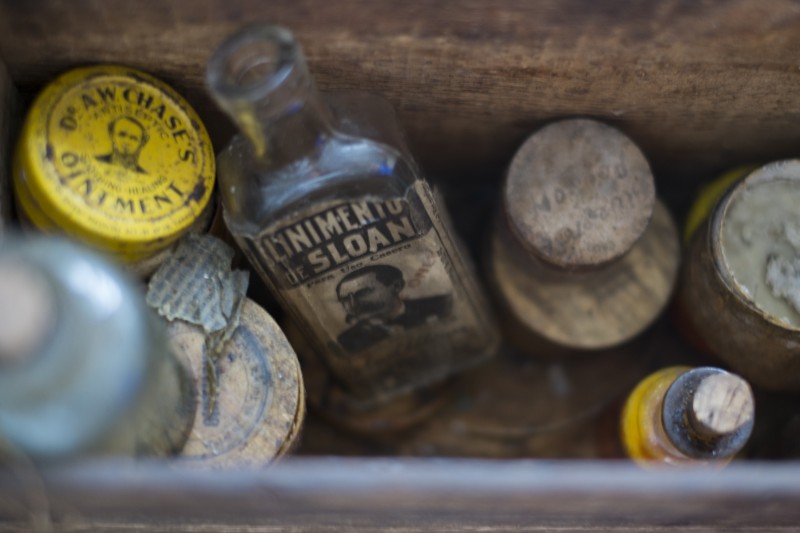Sex is (or can be) wonderful. It’s a fundamental part of the human experience. Sexual dysfunction among women (and men, for that matter) is a real problem. Lack of sexual interest, known in medical circles as Female Sexual Interest/Arousal Disorder (FSIAD) or Hypoactive Sexual Desire Disorder (HSDD) has significant impact on individuals and can destroy relationships. It’s rampant in our society. Treatment is complicated, time consuming, costly, and often ineffective. Better answers would absolutely be welcome.
Flibanserin is a non-hormonal medication for the treatment of HSDD in premenopausal patients. Its patent is currently held by Sprout Pharmaceuticals. It was originally developed as an antidepressant, but since it turned out not to be a very good one, the original manufacturer, Boehringer Pharmaceuticals, re-purposed it as a proposed treatment for HSDD. To be clear: Flibanserin and Viagra (aka sildenafil) are both pharmaceuticals, both treat sexual dysfunction. The similarities end there. Flibanserin affects the serotonin and dopamine systems in the brain, but how it impacts sexual desire is not really understood. The FDA has rejected flibanserin twice, first in 2009. After the initial rejection, Boehringer sold flibanserin to Sprout Pharmaceuticals. It was again rejected in 2013, both due to serious safety concerns and failure to prove effectiveness. After a third round of studies by Sprout, an FDA advisory panel recommended its approval on June 4, 2015. A final ruling by the FDA is still out.
Not surprisingly, there’s a lot of heat around Flibanserin. Women’s health advocates, including the National Organization for Women and a number of medical organizations, have organized a so-called Even the Score campaign, sighting double standards in the FDA’s approval process for drugs aimed at women versus men. Even the Score claims that “There are 26 FDA approved drugs to treat various sexual dysfunctions for men, (41 if you count generics) but still not one for women’s most common sexual complaint.” Even the Score claims that the FDA is “infantilizing” women and their docs by withholding Flibanserin from the market. These groups believe that the question of whether or not to use Flibanserin is best left to women and their doctors.
Since I’m on the opposite side of a debate with folks I’d normally agree with, I want to make sure I’m clear about a few things:
- Women controlling their own bodies is a good thing.
- Gender bias in science and medicine is pervasive. It is bad thing.
- Government intervention in our bedrooms is also a bad thing.
- Sex is a good thing. (Maybe I already mentioned this?)
Even the Score, really? It’s misleading to claim there are 26 drugs for men’s sexual dysfunction and none for women. This number includes 17 forms of testosterone, none of which are specifically approved to treat male sexual dysfunction!! By the same token, both topical and estrogen replacement therapy can be helpful for female sexual dysfunction, though they are not FDA approved for these indications.
Here we get into some serious semantics between FDA “approved” and what are generally “accepted” indications for medications. Many medications are used “off-label” for indications other than that for which they are approved by the FDA. This is a standard, accepted part of medical practice and is often backed by excellent scientific evidence. So, not counting testosterone, this leaves us with Viagra, its knock offs (no pun intended) and a handful of other drugs no one outside of a urology clinic has ever heard of. In Viagra, men have a flawed, potentially dangerous, and expensive drug to address their sexual dysfunction, and Even the Score would have you cry “Me too!”?
Instead of chastising the FDA, maybe we should celebrate an occasion upon which the FDA has demonstrated itself to not be a tool of the pharmaceutical industry. Sprout whines that they did everything the FDA asked them to do, and they were still turned down. Instead of demanding the FDA lower its standards for women, why don’t we demand a more rigorous approval process for medications for all of us?
The main safety concern with flibanserin involves the potentially serious interaction between alcohol and flibaserin: drink while taking flibanserin, and you’re likely to pass out. Good times. If you’re like me, capping off a rough day of work and kid-wrangling with a glass of wine already puts me into a coma, so flibanserin sounds like a waste of money at the very least. We also don’t know a lot about the interaction between flibaserin and other medications, such as antidepressants, since patients taking these medications were excluded from the trials. HSDD and depression often go hand in hand; we really don’t know whether this medicine is safe for this group of people. What’s not received much press is that animal studies show increased risk of mammary tumors in mice (10% vs. 0.7% in control groups). Whether or not this is a concern for human females, we also don’t know. The longest duration of use for flibanserin in studies was one year.
On top of its worrisome side effect profile, it just doesn’t work that well. Basically, the studies looked at three main endpoints: how often subjects had sex, their sexual desire (measured by a standardized score), and subject “distress” over their sexual dysfunction. Granted, sexual desire is a tough thing to measure. How to objectively measure desire in study subjects has been a major point of contention between pharma and the FDA; even by the manufacturer’s best estimates, the effect is small. The easiest outcome to measure is sexual activity among study subjects, so let’s look at those numbers. Comparing the “satisfying sexual events” among treated subjects compared with controls, the Sprout’s most recent, and most convincing, study shows that patients taking flibaserin had sex 4 times a month, versus 3 for placebo; both groups were having sex twice a month at baseline. Stated another way, just taking a sugar pill resulted a 50% increase in sexual activity. In her blog, Dr Jennifer Gunter asks the question “Would you take a pill every day to have sex once more per month?” It doesn’t sound worth it to me, but that answer will depend on how much you’re affected by poor sex drive. Like every other medical treatment under the sun, the balance of risk and benefit is ultimately something everyone has to decide for herself.
Does the drug have merits? Yes. Does it help some patients? Probably. Does it have the potential to cause harm? Absolutely. Are women and their health care providers capable of making these kinds of decisions? Well, duh!
The most predictable effect of FDA approval for flibanserin is a sharp uptick in stock prices for Sprout Pharmaceuticals. Particularly when there is so much money at stake, turning a risky, marginally effective drug into a feminist cause seems a tad irresponsible. This type of publicity will inevitably fuel consumer demand for Flibanserin if and when it comes to market. Coming from experience, I know it’s much easier as a physician to write a prescription than it is to have a real conversation. Our modern health care “system” has turned doctors into gatekeepers for the pharmaceutical industry. Patients often feel cheated if they don’t walk away with a new prescription. Perhaps the availability of a new drug to treat female sexual dysfunction will open the door to more patients discussing sexual health concerns with their providers. But in a world where we routinely try to shove a two hour conversation into a ten minute appointment slot, I suspect this will merely lead to over-prescribing at the expense of careful counseling. I would be thrilled to be wrong, but in the meantime, let’s cut the hype and look more carefully at the evidence.
References
FDA Briefing Document Joint Meeting of the Bone, Reproductive and Urologic Drugs Advisory Committee (BRUDAC) and the Drug Safety and Risk Management (DSaRM) Advisory Committee June 4, 2015 NDA 022526 Flibanserin.
Would you take a pill every day to have sex once more each month? Dr Jen Gunter. Wielding the Lasso of Truth, February 14, 2014. https://drjengunter.wordpress.com
The True Significance of Flibanserin’s ‘Modest’ Boost to Female Sexual Desire. David Kroll. June 14, 2015. http://www.forbes.com
Even the Score. http://eventhescore.org




